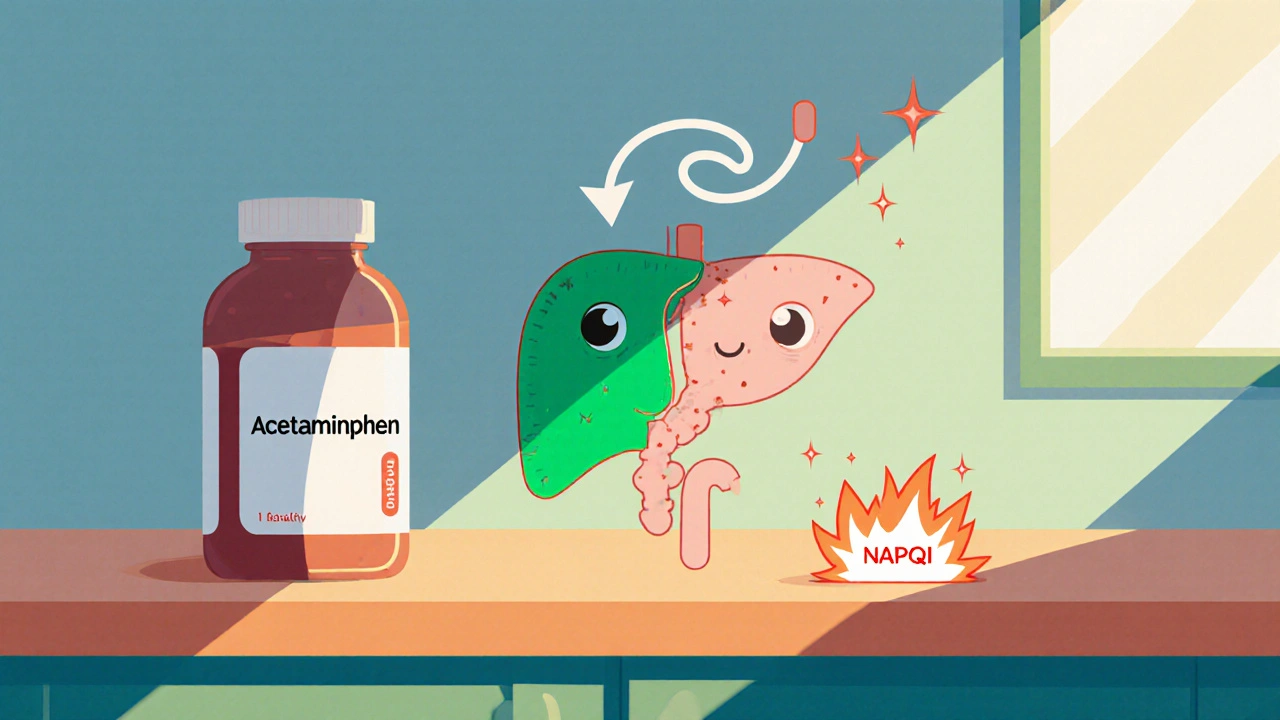Explore the scientific evidence behind the acetaminophen liver cancer link, understand risk factors, and learn practical steps to keep your liver safe.
Dose-Dependent Liver Damage: What You Need to Know About Drug-Induced Liver Injury
When your liver gets hurt because you took too much of a medicine—that’s dose-dependent liver damage, a type of liver injury that gets worse as the amount of drug increases. It’s not an allergic reaction. It’s not random. It’s predictable: more drug, more harm. Also known as drug-induced liver injury, it’s one of the most common reasons people end up in the hospital from medication mistakes. Unlike some liver problems that show up no matter how much you take, this one follows a clear pattern: low dose, safe. High dose, risky. And it doesn’t just happen with illegal drugs—it’s behind many cases of accidental overdose from common painkillers like acetaminophen, the active ingredient in Tylenol and hundreds of other cold and pain meds.
What makes this even trickier is that you might not feel anything until it’s too late. Your liver doesn’t have pain nerves. So by the time you feel tired, yellow, or nauseous, the damage could already be serious. That’s why knowing your meds matters. Carbamazepine, a seizure and nerve pain drug, can do this. So can NSAIDs, like meloxicam or ibuprofen, especially when used long-term or in high doses. Even herbal supplements aren’t safe. People think "natural" means harmless, but that’s not true. Your liver processes everything you swallow—and it has limits.
Some drugs are worse than others. Acetaminophen is the #1 culprit in the U.S. because it’s in so many products. You might take one for a headache, another for a cold, and another for sleep—all without realizing you’re hitting 4,000 mg in a day. That’s the max safe dose. Go over it, even once, and you risk serious harm. The same goes for antibiotics, antifungals, and even some cholesterol meds. It’s not about being careless. It’s about not knowing what’s in your medicine cabinet.
But here’s the good news: you can avoid this. Know your meds. Read labels. Track how much you’re taking. Talk to your doctor if you’re on multiple drugs. If you’re taking something long-term, ask if liver checks are needed. Most cases of dose-dependent liver damage are preventable—not because people are reckless, but because they didn’t know the risk.
The posts below cover real examples: how Tylenol can quietly damage your liver, how carbamazepine needs careful monitoring, how NSAIDs like Mobic add up over time, and why even common supplements aren’t risk-free. You’ll find practical guides on spotting early signs, understanding safe dosing, and choosing safer alternatives. No fluff. Just what you need to protect your liver before it’s too late.

